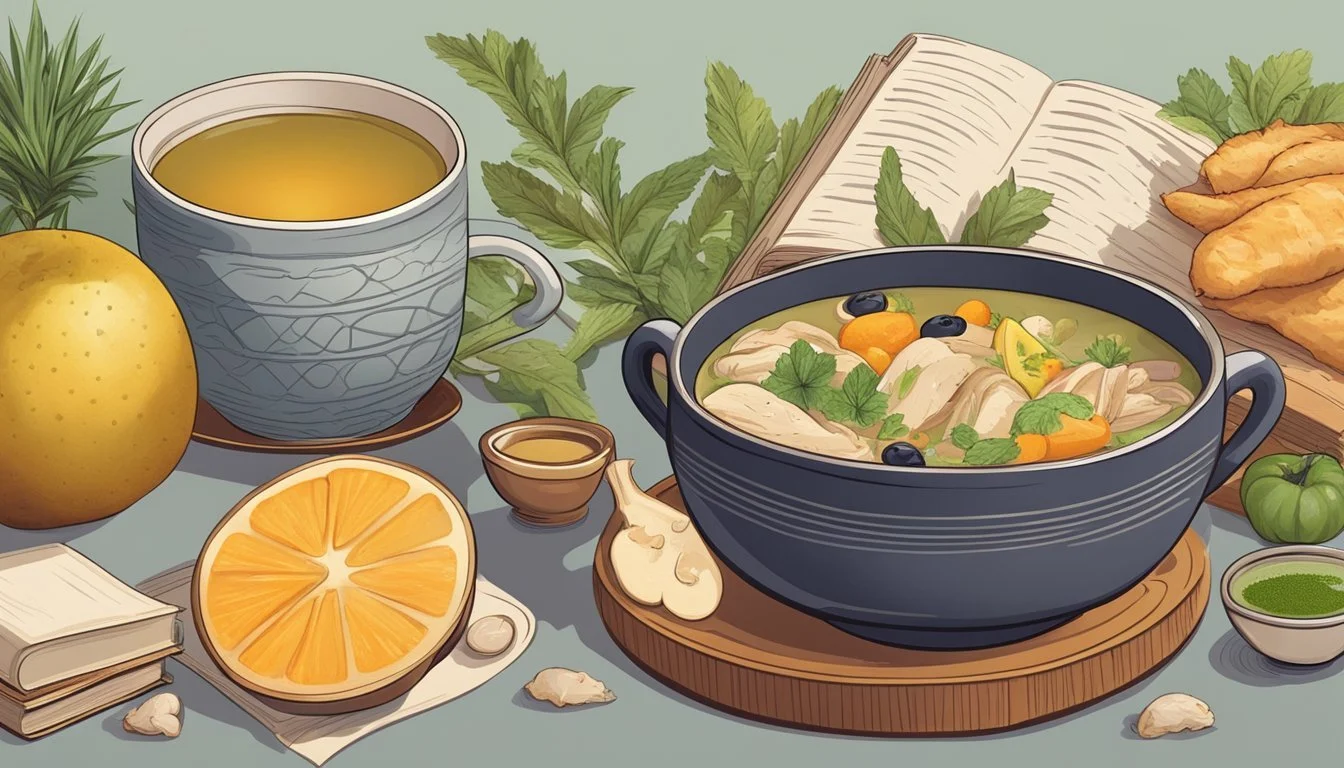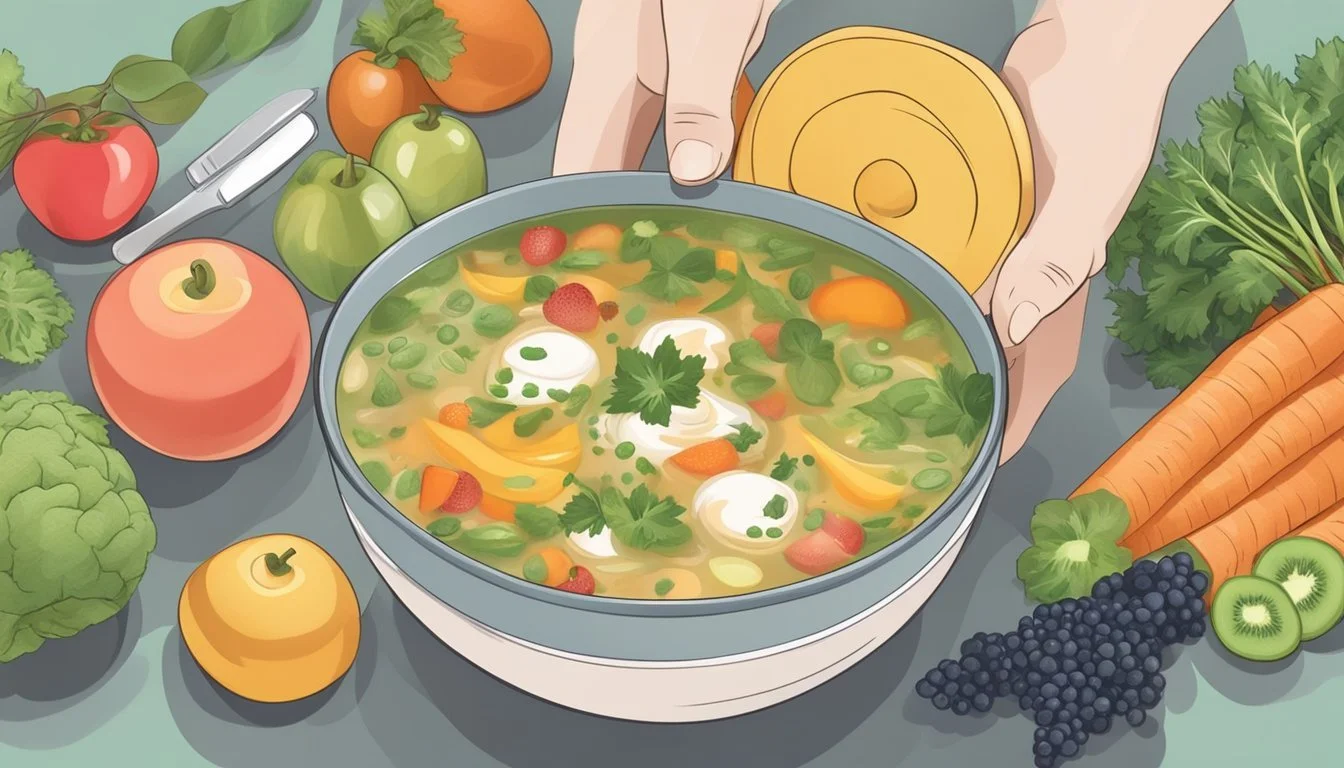Best Foods for a Quick Recovery from a Cold
Nutrient-Packed Choices to Bounce Back Faster
When battling the common cold, nutritional choices can play a crucial role in the recovery process. Certain foods have properties that can alleviate symptoms and boost the immune system, aiding the body in fighting off the infection more efficiently. A balanced diet rich in vitamins and minerals is an essential component of any recovery plan. Fluid intake is equally important; staying hydrated helps keep the mucous membranes moist, which can support the body's natural defense mechanisms against cold viruses.
Chicken soup, for instance, is not just a comforting meal but also a source of hydration, nourishment, and warmth that can help in mitigating cold symptoms. The amino acid cysteine, found in chicken, is reported to have mucolytic properties, which can assist in breaking up mucus and providing relief from congestion. Additionally, consuming fruits such as kiwifruit, which are high in vitamin C and other nutrients, may not only help alleviate symptoms but could potentially shorten the duration of the illness.
Other foods like peppers, containing capsaicin, are renowned for their decongestant capability, aiding in the thinning of mucus to relieve nasal congestion. Incorporating such foods into one's diet when sick can be an effective and natural approach to managing cold symptoms. The right food choices can support the body's healing process, reinforcing the immune response and helping individuals recover from the common cold more quickly.
Understanding Colds and Their Symptoms
A cold, commonly referred to as the common cold, is a viral infection targeting the upper respiratory system, including the sinuses, throat, and nose. It engages the immune system and presents a range of symptoms which can disrupt daily life.
The Immune System's Role
When a virus responsible for the common cold enters the body, the immune system launches a defense response. White blood cells are dispatched to fight off the infection, which can lead to inflammation and the various symptoms commonly associated with a cold.
Primary defenders: Specific white blood cells including T cells, B cells, and others combat the virus.
Inflammatory response: This can result in common symptoms like a sore throat, sinus congestion, and headache.
Common Symptoms
The symptoms of a cold are the immune system's reaction to the viral infection. They can vary in intensity and duration but typically include:
Sore throat: An initial sign which can range from mild irritation to severe pain.
Cough: An attempt by the body to clear the throat and respiratory tract of mucus and irritants.
Congestion: Swelling of nasal tissues leading to a blocked or stuffy feeling in the sinuses.
Runny nose: Overproduction of mucus as the body tries to expel the virus.
Headache: Often caused by sinus pressure due to congestion.
Fatigue: The body's energy is redirected to support the immune system, leading to feelings of tiredness.
Note: While these symptoms are common, they are not always indicative of the severity of the infection, and the immune response can vary significantly between individuals.
Nutritional Ways to Support Recovery
Proper nutrition plays a critical role in helping the body recover from a cold. By focusing on key nutrients, staying hydrated, and leveraging the benefits of antioxidants and probiotics, individuals can support their immune system and accelerate the healing process.
Vital Vitamins and Minerals
To support the immune system during a cold, it's essential to consume vitamins and minerals that bolster recovery. Two key players are:
Vitamin C: Found in citrus fruits, vitamin C contributes to immune defense by supporting cellular functions of the immune system.
Zinc: Poultry, seafood, and legumes are rich in zinc, a mineral that helps maintain immune function and has a role in the body's ability to resist infection.
Fruits high in vitamin C and zinc-fortified cereals can be encouraged as a part of the daily diet to ease cold symptoms.
Hydration for Healing
Hydration is paramount when recovering from a cold. Adequate fluids support the following:
Mucous membrane health
Mucus thinning for easier breathing
Herbal teas and broths contribute beneficial hydration while also providing warmth and comfort.
The Power of Antioxidants
Antioxidants aid in reducing inflammation and supporting the body's immune response. Foods rich in antioxidants include:
Berries
Leafy greens
Incorporating a variety of antioxidant-rich foods can be advantageous for those seeking to strengthen their immunity.
Probiotics and Gut Health
Probiotics have a crucial impact on gut health, which is connected to overall immune function. Consuming probiotics through:
Yogurt
Kefir
Fermented foods
can contribute to a balanced gut microbiome, further supporting the body's defense mechanisms.
The Best Foods to Eat During a Cold
When tackling a cold, it's essential to nourish the body with foods that can aid the immune system, ease symptoms, and provide comfort. The following selection of foods includes options that are rich in vitamins, antioxidants, and other nutrients known to support recovery.
Beneficial Fruits and Vegetables
Fruits:
Citrus fruits like oranges and grapefruits are packed with vitamin C, which is known for its immune-boosting properties.
Berries, including blueberries and strawberries, are high in antioxidants that can help reduce inflammation and fight infection.
Vegetables:
Leafy greens such as kale and spinach are loaded with vitamins A, C, and E, and minerals that support immune function.
Carrots offer a high dose of vitamin A, which is crucial for maintaining a healthy mucous membrane in the nasal passages.
Soothing Soups and Broths
Chicken soup is a timeless remedy for colds, not just for its comforting warmth but because it can help clear nasal congestion and keep the body hydrated. The amino acid cysteine, released from chicken during cooking, may help thin mucus.
Clear broths are gentle on the stomach and also help maintain hydration, which is vital for recovery.
Healing Herbs and Spices
Ginger can alleviate symptoms of a sore throat and possesses anti-inflammatory properties.
Garlic has been shown to boost the immune system, and it may have mild antiviral effects.
Black pepper can aid in digestion and has expectorant properties, potentially helping in clearing the respiratory tract.
Healthy Fats and Proteins
Fats:
Walnuts are not only a good source of protein but also contain omega-3 fatty acids that contribute to reducing inflammation.
Foods high in healthy fats, such as avocados, can support overall health and fortify the immune system.
Proteins:
Chicken in a chicken noodle soup provides essential amino acids the body needs to recover.
Oatmeal is not only soothing and easy to digest but also provides protein and nutrients to fuel the body while fighting off illness.
Remedies Beyond Diet
While maintaining a healthy diet can significantly aid in recovering from a cold, there are additional practices one can engage in to alleviate symptoms and promote a quicker recovery.
Staying Hydrated
Hydration is crucial during a cold, as fluids help maintain throat moisture and thin mucus. One should drink plenty of water and incorporate beverages like hot tea or broth. A concoction of tea with honey can soothe the throat and possibly reduce cough severity.
Relieving Symptoms
Alleviating discomfort from cold symptoms can be achieved through several methods:
Saltwater gargle: Gargling with saltwater may provide relief for a sore throat.
Humidifier: Using a humidifier adds moisture to the air, which can ease congestion and coughing.
Saline nasal sprays and neti pot usage can help in clearing nasal passages.
Hot steam: Inhaling steam may assist in decongestion, by loosening mucus.
Alternative Treatments
There are also alternative remedies that some find beneficial:
Echinacea: Believed to boost immunity and reduce the duration of a cold.
Elderberry: Often used for its potential antiviral properties, which may help tame cold symptoms.
Remember that while many of these practices are commonly recommended, the efficacy of alternative treatments like echinacea and elderberry may vary, and more research is needed to confirm their benefits. It is always advisable to consult with a healthcare professional before trying new remedies.
Lifestyle Adjustments for Quicker Recovery
To expedite recovery from a cold, one must fine-tune their daily habits. Specific adjustments in sleeping patterns, levels of physical activity, and reduction of exposure to irritants can support the immune system in its fight against the infection.
Sleep and Rest
Adequate sleep is crucial for recovery, as it allows the body to repair itself. Adults should aim for 7-9 hours of quality sleep per night. Rest becomes even more important when fighting a cold, to conserve energy for the immune response.
Sleep Tips:
Establish a regular sleep schedule.
Ensure a comfortable sleep environment—dark, cool, and quiet.
Avoid caffeine and alcohol before bedtime.
Physical Activity
Moderate exercise can boost the immune system but should be approached with caution. Symptoms above the neck, such as a runny nose, might allow for light exercise like walking. Anything more severe, especially fevers, warrants rest.
Exercise Recommendations:
Take brief walks if symptoms are mild.
Avoid strenuous workouts which could worsen the condition.
Practice meditation to reduce stress and promote relaxation.
Avoiding Irritants
Certain substances can irritate the respiratory tract and impede healing. These include smoke, perfume, and airborne chemicals. Additionally, reducing inflammatory foods like sugar and refined carbs can help alleviate symptoms and promote recovery.
Irritant Avoidance:
Minimize exposure to smoke and strong odors.
Opt for a diet rich in whole foods to avoid inflammation.
When to Seek Medical Attention
In managing a cold, it's crucial to discern when symptoms warrant professional medical guidance. This section highlights circumstances under which one should consider consulting healthcare providers and recognize complications that extend beyond the scope of home remedies.
Recognizing Complications
Complications from a cold can arise, particularly if symptoms persist beyond 10 days or worsen. Signs that indicate the need for immediate attention include:
High fever: A fever exceeding 101.3°F (38.5°C) or lasting more than three days.
Breathing difficulties: Shortness of breath or wheezing that signals potential respiratory infections.
Chest pain or pressure: Could hint at a severe condition like pneumonia.
Severe sore throat: A possible bacterial infection that might require antibiotics.
Persistent pain: Especially in the sinuses or ears, which may indicate a secondary infection.
Consulting Healthcare Providers
A healthcare provider's expertise is indispensable when symptoms suggest something more than just a common cold. In the United States, individuals should consider:
Telemedicine options: For initial evaluation, sparing the need for in-person visits.
Primary care appointments: If symptoms don't improve or worsen despite home care.
They can assess the need for antibiotics, which are ineffective against viruses but essential for bacterial complications.
Immediate medical attention can prevent the progression of serious conditions, ensuring a proper and timely recovery.
Conclusion
Self-care and home remedies play crucial roles in combating the common cold. While there's no cure for the common cold, certain foods can significantly aid in recovery. Foods rich in vitamins, such as kiwifruit, provide essential nutrients to boost the immune system. Additionally, foods with antiviral properties, like garlic, can be beneficial.
In the quest for cold remedies, one cannot overlook the traditional chicken soup. Chicken soup offers protein and an array of vitamins from vegetables. Moreover, incorporating foods that are high in zinc, such as pumpkin seeds or cashews, may help in reducing cold duration.
Key Takeaways
Immune Boosting: Foods like kiwifruit and garlic bolster the immune system.
Hydration: Green tea not only provides antioxidants but also keeps the body hydrated.
Zinc: Include zinc-rich foods to activate T-lymphocytes for a quicker response to colds.
Comfort: Do not underestimate the benefits of chicken soup for comfort and nutrition.
It's vital for individuals to prioritize these remedies alongside sufficient rest and hydration. They should integrate these foods strategically into their diet for a balanced approach to cold recovery. Remember, a holistic approach combining nutrition, hydration, and rest is the most effective strategy against the common cold.





